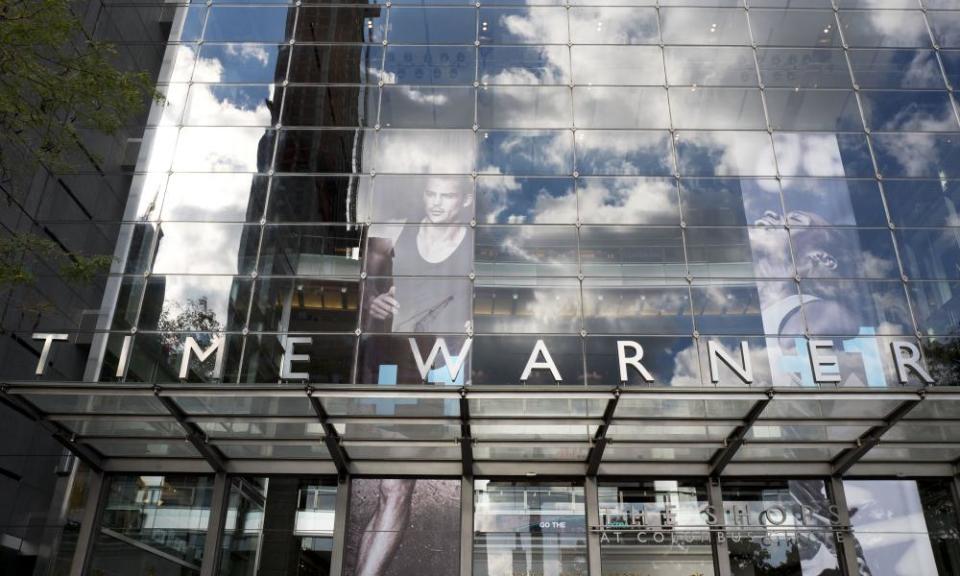AT&T's Time Warner takeover: justice department aims to block $85bn deal

The US Department of Justice on Monday moved to block AT&T’s $85bn takeover of Time Warner, one of the largest media deals ever announced.
The decision to file suit against the deal is likely to set off a high stakes court battle – AT&T has already signaled it will go to court if the deal is blocked – and will start one of the biggest corporate merger legal battles in decades.
The suit argues the deal will “substantially lessen competition, resulting in higher prices and less innovation for millions of Americans”.
“This merger would greatly harm American consumers. It would mean higher monthly television bills and fewer of the new, emerging innovative options that consumers are beginning to enjoy,” said assistant attorney general Makan Delrahim of the department’s antitrust division.
David McAtee, AT&T’s general counsel called the suit “a radical and inexplicable departure from decades of antitrust precedent”.
The US authorities had already called for major changes before signing off on any deal. Critics have claimed the deal is being held hostage because of Donald Trump’s antipathy towards CNN, owned by Time Warner and which he has branded as “fake news”.
The deal was first announced in October 2016, just weeks before the presidential election. During the campaign, and since his election, Trump has regularly attacked CNN, calling the network “terrible” and “fake news” at his first press conference after the election.
Trump attacked the network again while on his recent tour of Asia, calling it “bad” and “FAKE”.
While in the Philippines I was forced to watch @CNN, which I have not done in months, and again realized how bad, and FAKE, it is. Loser!
— Donald J. Trump (@realDonaldTrump) November 15, 2017
Reports suggested that AT&T, the world’s largest telecommunications company, had offered to sell CNN in order for a deal to go through. But the chief executive officer, Randall Stephenson, denied any such compromise had been offered. “Throughout this process, I have never offered to sell CNN and have no intention of doing so,” he said in a statement earlier this month.
In a press conference after the news broke Stephenson acknowledged the speculation that Trump’s antipathy to CNN had sparked the legal move. “Frankly I don’t know,” he said. “But nobody should be surprised that the question keeps coming up.”
Stephenson said the deal had “the whole world” questioning what the justice department “can and cannot do”.
He said any deal would protect CNN’s “first amendment rights” and no deal would be struck without the news channel.
Time Warner, owner of CNN, HBO, Warner Brothers and other big-name media properties, does not compete directly with AT&T meaning there is little argument against the deal on competition grounds.
But the justice department argues that combining Time Warner’s assets with AT&T and its DirecTV satellite television business would directly harm consumers, quoting statements from DirecTV that so-called “vertically integrated programmers” – which own the means of distribution as well as the content – can “much more credibly threaten to withhold programming from rival [distributors]” and can “use such threats to demand higher prices and more favorable terms”.
“Vertical mergers like this one are routinely approved because they benefit consumers without removing any competitor from the market. We see no legitimate reason for our merger to be treated differently,” said McAtee.
“Fortunately, the Department of Justice doesn’t have the final say in this matter. Rather, it bears the burden of proving to the US district court that the transaction violates the law. We are confident that the court will reject the government’s claims and permit this merger under longstanding legal precedent.”
The deal comes as tech giants Amazon, Apple, Google and Netflix are increasingly challenging traditional media players and competing for their audiences.
But the deal would hand some of the most powerful brands in media to the largest player in telecom. Comcast, the US’s largest broadband provider, took over NBC Universal, owner of the NBC network and Universal Studios in 2009 and that deal has been roundly criticised by senators who believe Comcast has used its cable dominance to quash competition.
Stephenson has argued that it “borders on comical” to suggest AT&T would be too powerful after a merger.
The Writers Guild of America West welcomed the news. “As we have stated since this deal was first proposed, the size, scope and potential harm to both consumers and content creators provide ample reason to block the merger on its merits.
“The proposed combination of must-have content with vast control over distribution would give the company broad power to undermine competition, restrict access to programming and raise prices,” the guild said in a statement. “With reports surfacing each week of other possible media mergers, blocking this deal has only become more critical.”
• Follow Guardian Business on Twitter at @BusinessDesk, or sign up to the daily Business Today email here.

 Yahoo Finance
Yahoo Finance 